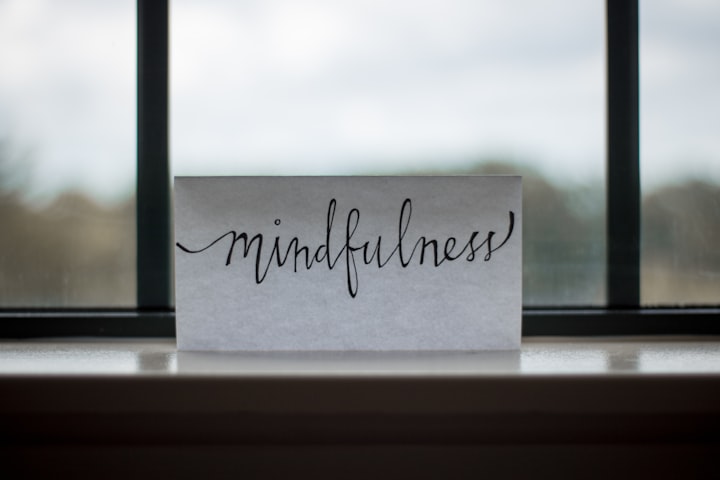
Since the pandemic lockdowns were first declared, I haven't been separated from everyone else once.
My significant other and I began telecommuting on precisely the same day. Our child's childcare shut down inside two or three days.
Like quite a bit of America, my better half, my child, and I - and our canine - were home together. All. The. Time.
We didn't see any other individual, and we didn't go anyplace. Neither of us has family that lives remotely close to us. We were unable to try and work in independent rooms, since we needed to attempt to tag-group working and watching our 9-month-old child.
In spite of this "together time," there were times when I felt forlorn. I missed the drive times when I'd get to peruse without help from anyone else. I missed my family and my colleagues. I felt disengaged from my previous lifestyle - and from myself.
I was all the while feeling forlorn and "alonely." I felt alone, yet additionally unfit to get any evident isolation since there was no place in the house to get away from my family, in any event, for 5 minutes.
The clashing sentiments left me feeling detached and, on occasion, angry and fast to outrage.
Feeling desolate when you're in good company
"Individuals are regularly astonished to understand that they actually experience dejection while living with their better half," says Jessica Small, an authorized marriage and family advisor in Denver, Colorado. "Depression is only a typical piece of the human experience. We can feel it any time, in any circumstance."
Little brings up that, eventually, forlornness is simply one more inclination.
"[It's] equivalent to joy, trouble, or outrage, and very much like some other inclination, it travels every which way and doesn't remain perpetually," she says.
As indicated by Small, a few reasons depression might emerge include:
feeling separated from an accomplice
missing the mayhem of residing in a family home
not feeling seen or feeling as you don't make any difference
becoming separated from or neglecting to check in with your accomplice
As such, feeling forlorn is about discernment, not only having somebody around.
"At the center of dejection are sensations of detachment," says Nicholas Hardy, a psychotherapist in Houston, Texas.
Psychotherapist Traci Ruble of San Francisco, California, concurs.
"We really want in excess of a human body close to us to not feel desolate," she says. "We are installed into a more prominent trap of having a place that gives us meaning and adds to our general social wellbeing."
The basic associations we're absent
The basic, ordinary schedules we depended on before the pandemic offered us numerous chances for association that we're presently passing up.
"Consider every one individuals you never again see en route to work: Jo who makes your espresso, Valerie who runs the bloom truck out front of your office, Samil, who works in the workplace nearby who pops in to say great morning, the natural countenances on the transport or train," says Ruble. "These countenances amount to 'my local area.'"
Little concurs.
"People are normally friendly creatures," she says. "The pandemic has made it agonizingly challenging to get this need met. Zoom is definitely not an adequate substitute for human association. With video calls, we are as yet missing the energy of someone else."
There is likewise a distinction between investing energy with companions or family that are in our home and those that aren't.
"At one point, individuals that we live with become such a fundamental piece of our reality that they may not give the very kind of socialization or break that we get from meeting up with individuals outside our home," Small says.
These social associations assisted us with feeling associated with ourselves and gave us energy. Without them, our reality has become tiny. We're lamenting the manner in which our lives used to be.
Prompt 'aloneliness'
Aloneliness is a generally new term. It was begat by analyst Robert Coplan and his partners in 2019. Basically, it's the perfect representation of forlornness.
It's that feeling you get when you're always unable to simply be genuinely alone on the grounds that somebody is generally in a similar room as you. It's an absence of value "you time."
Without that by itself time, you have less opportunity to handle troublesome feelings, similar to your sorrow over the new ordinary. There's less opportunity to simply unwind without anyone else.
It can likewise affect nervousness levels. For instance, one late investigation discovered that when had opportunity and willpower to sit alone in a space for 15 minutes with no outer feeling, it assisted them with quieting down from high conditions of tension or volatility.
The pandemic has constrained a large number of us into a "bubble" with our close family, with brief period to ourselves. This is particularly obvious assuming that you're a parent attempting to offset telecommuting with every minute of every day nurturing.
Clashing sentiments, neglected needs
A couple of individuals can't be everything for you. While we're avoiding every other person so we don't become ill, we might place a ton of demands on individuals in our air pocket. That can prompt disdain, quarreling, and sensations of disengagement.
"Actually, we really want to make curiosity, play, essentialness, and a specific measure of distance so we can 'want' one another," says Coplan.
The pandemic has additionally constrained us into a few pretty commonplace schedules.
"In a drawn out relationship, schedules are normal, however when we are not cautious, they can choke out our capacity to move past the surface or investigate new parts of who our accomplice has become," says Hardy.
"Without purposeful discussions that offer profundity or an inquisitive attitude, we could miss how our accomplice has developed or [not] get their deepest contemplations and sentiments."
As per Hardy, this deficiency of closeness can prompt sensations of depression even in your accomplice's presence.
Adapting to dejection, aloneliness, and everything in the middle
The means beneath are ideas for adapting to a wide range of depression.
Give yourself some sympathy
"Inconvenience and feeling enthusiastic during this pandemic is an extremely sound reaction to this exceptionally not ordinary time," says Ruble.
Give yourself and your friends and family a tad of a break. Things are extreme the present moment, and it's OK to not feel OK.
Standardize your sentiments
Everybody gets these sentiments sometimes, and the pandemic has supercharged them. There's no compelling reason to feel terrible for having them.
"While the sensation of depression presents, notice it without judgment and consider, 'Where is this coming from, and what is it telling me?' to more readily get its beginnings," says Small.
Simultaneously, we can advise ourselves that it will pass.
"Whenever we're ready to comprehend that depression, similar to any inclination, just endures 60-90 seconds without our contemplations propagating it, it turns out to be less alarming," Small says.
Rather than driving away the awkward inclination, we can construct a resistance.
As indicated by Small, this makes a space to more readily get our desolate sentiments and everything that they're attempting to say to us. Assuming we drive them away with interruption, we botch that opportunity.
Allow your sentiments to move you to roll out certain improvements
"The forlorn sentiments are there to direct you to get more association with nature, with others, or to be in unexpected ways in comparison to you at present are," says Ruble.
Take a stab at paying attention to everything that the dejection is attempting to say to you. Do you really want a stroll through the area or on the neighborhood climbing trail? Do you have to get an espresso at a nearby bistro so you can be around others, even actually separated?
"Assuming somebody is feeling separated, we could begin to recognize minutes when they really do feel associated with others - and in the event that they don't, what's obstructing that association," says Small.
"We could investigate their taking care of oneself methodologies and increment their capacity to connect and request help and backing from their loved ones."
Chat with your accomplice or family
"Just talking is a significant positive development, gave they have a solid sense of security [to do so]," says Hardy. "This permits others a valuable chance to help and offer help."
At the point when we hold our sentiments inside, it just enhances them, Hardy makes sense of. Assuming that you converse with one another, you could figure out you're in good company to feel as such. Perhaps you can both work towards finding an answer together.
For instance, you can both give each other a quality alone chance to facilitate any sensations of aloneliness or find pandemic-safe exercises outside the house so you feel less disengaged from others.
"[I] can't see you how much a basic after-supper family walk has been momentous to my family," says Ruble.
Request alone time
It very well may be hard to adapt to clashing sentiments, like forlornness and aloneliness. They're both typical, and on the grounds that you need human association now and then doesn't mean you don't merit a break, as well.
Carve out opportunity for yourself, regardless of whether it's only 15 minutes, and focus on your own taking care of oneself. It could assist you with liking the together time more, as well.
Request help from an expert
On the off chance that you're finding it hard to adapt to sensations of detachment, there's no disgrace in looking for help from an emotional well-being master.
Signs that sensations of forlornness or aloneliness could be influencing you, your relationship, or your emotional wellness could include:
expanded struggle at home
tireless pessimism
changes in your resting or dietary patterns
sensations of pity and sadness
A specialist can assist you with inspecting what's happening and foster customized adapting procedures. A couple's advisor can likewise assist you work on relationship issues with your accomplice.
The main concern
The pandemic has been hard for everybody, and it's normal to be affected by it. Whether you're feeling baffled, disengaged, desolate, alonely, or all of the abovementioned, know that it's OK to not be OK.
These are ordinary sentiments. As things begin to return to ordinary with reopenings and expanded immunizations, some of what you're feeling could begin to back off.
All things considered, depression and aloneliness can exist whenever, pandemic or not. That is the reason survival strategies can go far to making a difference





Comments
There are no comments for this story
Be the first to respond and start the conversation.